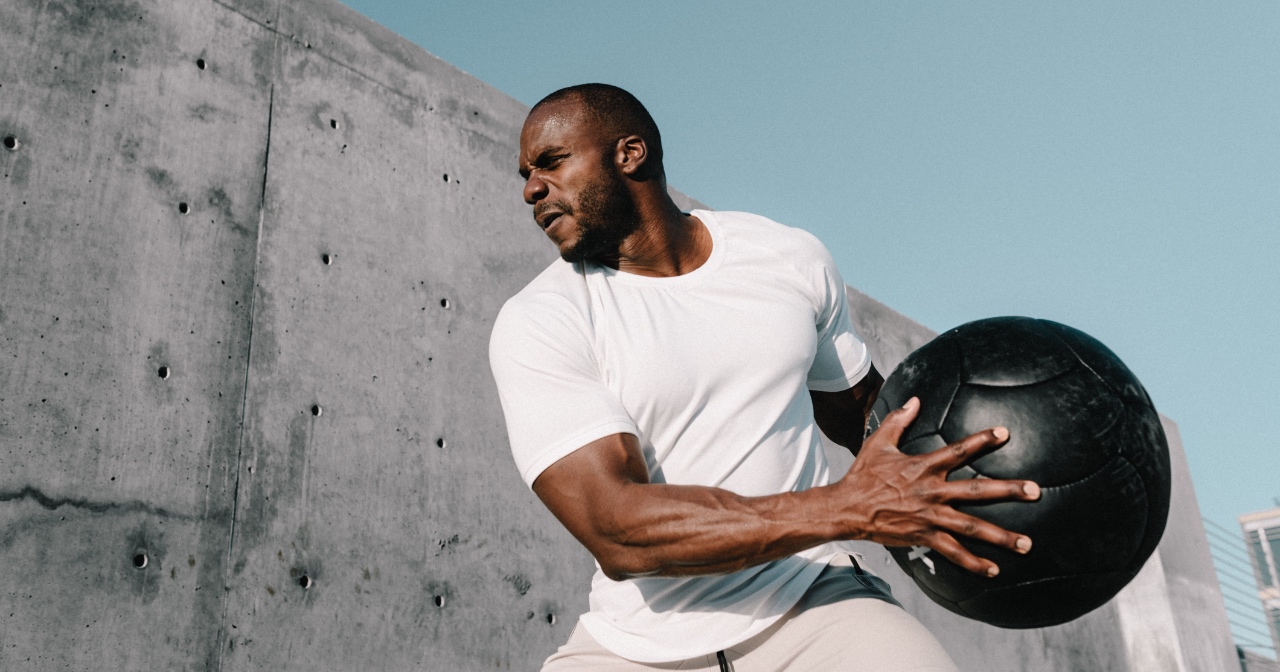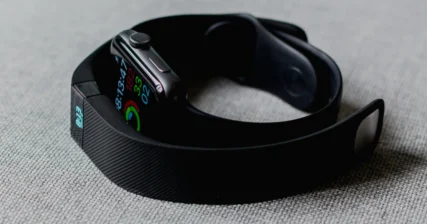Listen on: Apple Podcasts | Spotify
Is it possible to build muscle without gaining body fat? Or could it even be possible to gain muscle and lose fat?
If you ask the average “bro” at the gym or even the average personal trainer, they’ll tell you that you need to eat a ton of calories and get fatter while you build muscle. Then, after you’ve gained enough muscle, they’ll tell you to go on a “cut” so you can drop the fat.
But outside of a bodybuilder or high-level football player, who wants to deal with the consequences of getting fatter to build muscle? From my experience, not very many people. They’d prefer to improve their body composition, not make it worse.
The good news is, you don’t need to gain body fat to build muscle. Even better, you might be able to build muscle while losing fat.
Why Most Personal Trainers Recommend “Bulking Diets” for Building Muscle
To this day, most nutrition texts recommend people eat in a caloric surplus to build muscle. So, it’s no surprise that entry-level personal trainers without real-world experience regurgitate the same outdated information they learned in school or their certifications.
Their explanation usually goes something like this: “To gain weight, you need to eat more calories than you burn. If your calculated maintenance calorie need is 3000 per day, you’ll need to eat 3500 calories per day to support gains in muscle. Unfortunately, because you’re eating in a calorie surplus, you’ll also gain body fat. But don’t worry. Once you’ve gained enough muscle, we’ll put you on a “cut” where we’ll help you drop the body fat and maintain as much muscle as possible.”
Does such a strategy work? Yes.
But before you agree to such a plan, I suggest asking yourself a few questions:
- Will you be mentally okay with getting fatter and buying a new wardrobe, so you have clothes that won’t make you look like a stuffed sausage?
- Are you okay with the health consequences related to body fat gains?
- Are you mentally prepared to have your life revolve around your weight training and your meals?
If you’re young or single, or a physique competitor or athlete, you’re probably okay with the above.
The middle-aged men and women with families and other obligations who make up my VIGOR Training membership base aren’t okay with the above.
The good news is, you don’t need to get fatter to build muscle, and building muscle is one of the most important things you can do for your long-term health and quality-of-life.
First the science, then the application.
Research Findings: Muscle growth and fat loss on a low-calorie diet
Researchers split a group of people into two groups. Each group followed a low-calorie, weight-loss diet that equaled 60% of their maintenance level of calories.
A 40% calorie reduction is a significant calorie deficit. Though both groups ate the same level of calories, one group ate more protein than the other. To control for calories, the higher-protein group ate less fat.
The higher-protein group ate 1.1 grams of protein per pound body weight per day, while the other group ate 0.55 grams of protein per pound. The lower-protein group ate a level of protein similar to the Standard American Diet.
Both groups strength-trained six days per week.
At the end of the four-week study, the low-calorie, high-protein group gained muscle and lost more body fat than the low-calorie, normal-protein group.
How do you build muscle?
To build muscle, you must consistently stimulate protein synthesis (muscle growth), while consuming enough essential amino acids to supply your body’s daily maintenance needs plus that which is needed to build additional muscle.
A well-designed strength training program plus a high-protein diet are the two key factors for muscle growth. Your total calorie, or carbohydrate, or fat intake is of little relevance.
You can build muscle even in a calorie deficit because you already have plenty of energy stored up in your body fat. As long as you can tap into your fat stores, your body can meet its energy needs with stored fat and glycogen.
While your strength training program and protein intake are the two most important factors, a few others affect your ability to build muscle:
- Rest and recovery, which includes consistently getting seven or more hours of high-quality sleep.
- Avoidance of nutrient gaps or deficiencies. This is why I almost always recommend the Foundational 5.
- Healthy hormone production. I recommend asking your doctor for a complete, annual hormone panel, which includes a thorough assessment of thyroid function, testosterone, growth hormone, etc.
Unless you’re starving or train excessively, your calorie intake isn’t critical for lean muscle mass growth.
How to Build Muscle Without Getting Fat
To me, the findings of the study above are not surprising. I see it all the time in clients and in my online personal training program.
Provided they follow the training plan, they’ll create the proper stimulus to build muscle while allowing for adequate recovery time to build and repair muscle tissue.
Then, the first nutritional change I recommend is eating a high-protein diet. I don’t care what other foods they eat in addition to the protein because the higher intake of protein starts to crowd out the other foods, which keeps their carb and fat intake in check.
With those two habits in place, I then focus on sleep quantity and quality and their consistency with taking the Foundational 5.
From there, we often continue to tweak and tinker, which is where other nutrition changes come in, such as:
- Getting rid of gluten
- Possibly dropping dairy
- Incorporating intermittent fasting
- Adding other muscle-building supplements to support their training or recovery efforts, or those that support sleep, digestion, or other systems in the body
And for those who have a very short timeline to build muscle and get leaner, I might suggest they follow 28 Days: Four weeks of fat loss.
That said, none of these extra efforts replace the importance of a high-protein diet and a well-designed weight training program.
Read also: Can you lose weight without cardio?
How much muscle can you gain?
The average person can reasonably gain a half-pound of true muscle mass per month. Measured muscle gains beyond that are often the result of extra glycogen and water storage or inflammation from training sessions.
Your body can build a substantial amount of muscle, but the extent of your muscle gains depends on numerous factors:
- Your level of consistency with the points I shared above
- Your genetics
- Your level of life-related stress
- The use of anabolic steroids
I’m not a proponent of anabolic steroid use unless someone has done everything possible to optimize their hormone levels, and they’re still well-below optimal. In those cases, I recommend working with a medical doctor who’s an expert in hormones.
This becomes more important in our later years, when we face issues like menopause or andropause or those who’ve experienced head or gonad trauma.
That said, for the majority of people who lack muscle and carry extra body fat, their issue isn’t genetics or excessive stress.
They may have excuses and explanations in mind, but the issue most often is that they don’t consistently follow a good strength training program and eat a high-protein diet.
Photo by Karsten Winegeart on Unsplash



